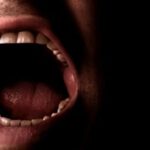After reading a recent Slate piece, we thought it might be worth taking one more bite at Misophonia.
It’s one of those conditions that you might not know is a condition, even if you have it.
Misophonia – from the Greek word meaning hatred of sound – is characterized by feelings of rage triggered by other people chewing, sipping or chomping on their food. It’s more than just not liking bad manners at the table, but a real visceral reaction to that sound or other kinds of sounds such as sniffing, lip-smacking and even other people breathing.
Many with the condition have the same kind of surprised reaction that writer Megan Cartwright described in her Slate article.
“Other people have this?! “ she asked.
She thought it was just her.
No other people have it, but often just think that it’s just them. Although Cartwright looks at a few recent small studies a little skeptically, 23andMe recently conducted an internal study looking at more than 90,000 customers who have consented to research and found that about 20 percent reported that they were “filled with rage” by the sound of others eating.
The percentage found in 23andMe’s study was similar to the numbers found in a study cited by Cartwright that was done last year by psychologists at the University of South Florida. That work also found that the condition appeared to be associated with psychiatric conditions such as anxiety, depression and obsessive compulsive disorder. But other researchers said characterizing the condition, as a psychiatric disorder is a mistake.
She interviewed Dutch researcher Pawel Jastreboff, who with his wife and co-researcher, Margaret Jastreboff, first came up with the term misophonia. Pawel suggests that the condition has more to do with learned behavior by an individual with an existing sensitivity to sounds.
23andMe’s research, which focused on people of European ancestry, identified a specific genetic variant, , associated with misophonia that is near the gene TENM2, which plays a role in brain development.